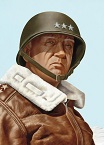tiemanjw
Posts: 580
Joined: 12/6/2008
Status: offline

|
For what it is worth, Neptune's Inferno has a different take on events. The second section (if it can be called that) of chapter 6 says that:
"William Stutt, reported to his base at Milne Bay that ships... include two seaplane tenders, or gunboats." It goes on to say that the report was transmitted to "his base" (I assume Milne Bay), sat for several hours there, then for more hours at Brisbane and "finally reached Turner and Crutchley between 6 and 7 pm" (I assume local time). However it says that because the report said "sea plane tenders" it didn't raise suspicions.
It also says that Stutt and his crew did not know of operation Watchtower.
EDIT:
To be fair to Stutt and his crew, I'm not saying he is guilty of anything - I'm just parroting what I've read. I don't know much about the actual process of encoding and transmitting a report in a Hudson at this time, but (and correct me if I'm wrong), the process includes writing / composing a message - perhaps with shorthand used for ship types, encoding the message, transmitting the message - by punching out a bunch of dots and dashes on a small lever (while the A/C is possibly vibrating from turbulence or banking to hide from fighters), freespace transmission of the message, receive the message and write down what it says while listening to the beeps and dashes, and than decoding the message. This would than need to be done at least 2 more times (Milne Bay to Brisbane, Brisbane to Turner). A mistake in any of these steps could cause the analog equivalent of a "bit flip", potentially changing the meaning.
Further, the book also says that Mikawa conducted float plane operations (the book seems to indicate this happened after the Hudson reported, but I wasn't there). Stutt could have just said he saw warships (gunboats) operating float planes - which were later interpreted as tenders.
< Message edited by tiemanj -- 10/28/2014 4:27:00 PM >
|
 Printable Version
Printable Version



















 New Messages
New Messages No New Messages
No New Messages Hot Topic w/ New Messages
Hot Topic w/ New Messages Hot Topic w/o New Messages
Hot Topic w/o New Messages Locked w/ New Messages
Locked w/ New Messages Locked w/o New Messages
Locked w/o New Messages Post New Thread
Post New Thread